Entrepreneurship Pays High Dividends
Almost a decade since its founding, the John E. and Susan S. Bates Center for Entrepreneurship and Leadership has continued to flourish.
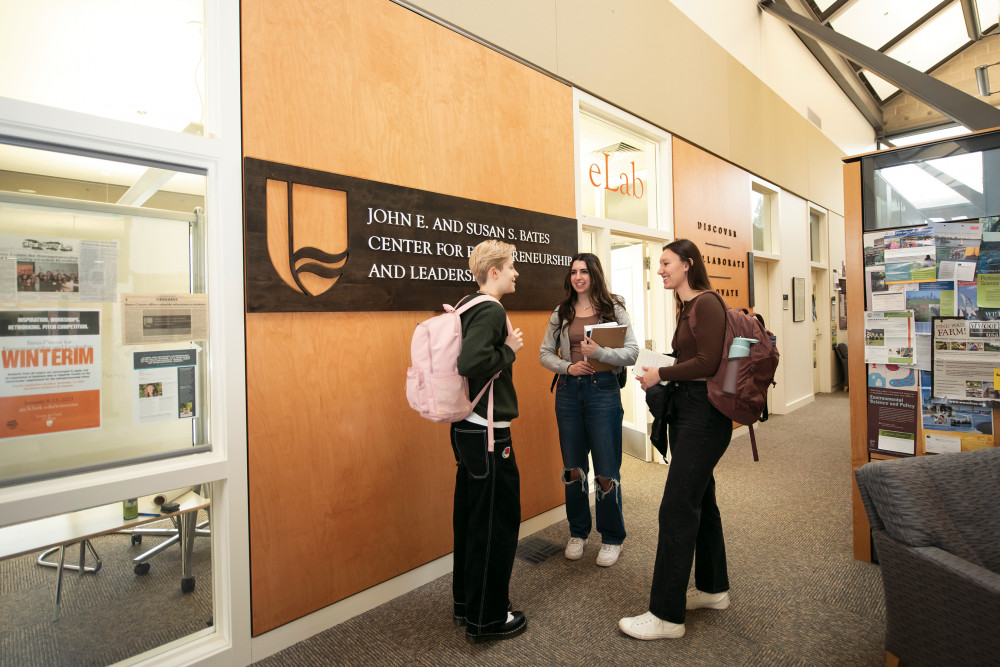
Bates Center Alumni
by Romel Hernandez
Almost a decade since its founding, the John E. and Susan S. Bates Center for Entrepreneurship and Leadership has grown from a fledgling start-up to a major success story at Lewis & Clark.
Enrollment in Bates Center courses has surged 230 percent in the past three years, with 2022–23 proving to be another record year. Participation is especially strong among first-generation, low-income, and international students, who are represented in classes at double their numbers in the general undergraduate population. The minor in entrepreneurial leadership and innovation, which was created in spring 2020, has rapidly become the undergraduate college’s most popular minor.
“We’re building on our deep liberal arts strength here at Lewis & Clark,” says Chrys Hutchings, a self-described “recovering attorney” and adjunct professor who serves as the center’s director. “We help students apply their education and prepare for roles as advocates for themselves and others in the future of work, venture, and adventure.”
Robust Programs
Launched in 2014, the Bates Center provides an array of programming including academic classes, internships, mentorships and career/ venture networking. Hutchings says, “We don’t just tell students they need a network; we actively help them curate their own personal network.”
Its signature program, Winterim, dates back to the origins of the center. Winterim is a five-day immersive entrepreneurship opportunity over winter break in which participants learn entrepreneurial and life skills with the help of inspirational speakers, mentors, and leaders in the for-profit and nonprofit communities. It features a pitch competition with cash prizes for student-generated proposals and an “Ask Me Anything” speed networking session with industry representatives. This year, thanks to an anonymous donation, Winterim registration was made free to all students for the first time.
Recognizing that not every student who comes through the door is going to start a company, the Bates Center adopts a broader approach to what Hutchings calls “the entrepreneurial mindset.” Students develop the ability to analyze, adapt, innovate, and advocate. The center’s classes and programming complement students’ academic studies, preparing graduates to succeed in whatever career they choose, from the corporate world to the nonprofit sector and everything in between.
The center offers more than 20 academic classes enrolling some 300 students. Last fall, its introductory course proved so popular, a third section needed to be opened at the last minute to accommodate demand. Other classes on topics such as marketing and project management fill quickly. A Skills Lab short course in Excel and an internship course are also popular. This year, the 15 students in the internship course could select from more than 36 paid internships. In response to strong student feedback, the center plans to expand offerings related to both personal and professional financial literacy.
The goals of the Bates Center are not focused primarily on wealth generation. An ethos of “social entrepreneurship”—the term for profit and nonprofit initiatives aimed at solving social, cultural, or environmental challenges—is woven throughout everything the center does.
The center taps into students’ “eagerness to search for innovative ways to solve problems, driven by a sense of urgency and a willingness to take risks,” says Professor of Psychology Brian Detweiler-Bedell, the center’s founding director. “When they leave Lewis & Clark, they’ve developed their curiosity into lifelong creativity, resourcefulness, and resilience, as they strive to bring their ideas to life and make a meaningful impact on the world.”
Investing in Success
The Bates Center’s success is the result of fundraising and partnership building, making it a financially self-sustaining enterprise. Hutchings says, “We’re very much our own start-up.”
The center takes its name from donors John and Susan Bates. John Bates was a former finance professor at the college, who cofounded a successful financial services firm. John is also a life trustee of Lewis & Clark.
This year, the Bates Center received a major financial boost in the form of a $1.5 million grant from the Robert D. and Marcia H. Randall Charitable Trust to endow the center’s first professorship. The award is being matched with an additional $1.5 million gift that was generated, fittingly, from the sale of the college’s investment in a firm started by two alums. The college plans to make the full-time faculty hire by fall 2024.
Over time, the Bates Center’s endowment has grown to $5 million. In addition to support from the college and the center’s endowment, the center receives funding for its operating budget from a nearly 30-member external advisory board. Each member provides a minimum of $10,000 in support annually. In addition, advisory board members consult on what employers are seeking, the future of work, and market trends. They also support students through networking, internships, and project advising. Both John and his son and partner, Christopher Bates, serve on the board.
That sustaining support provides funding for faculty and staff, including an “entrepreneur in residence,” as well as innovative programming such as a weeklong entrepreneurship camp for high schoolers, which will be entering its second year this summer. Another regular offering is Lunch With a Leader, a casual event where students get to meet with—and pick the brains of—guests from a diverse range of for-profit and nonprofit entities. Recent lunches have featured leaders from sports marketing, television programming, and economic development.
“There is no typical Lewis & Clark entrepreneurship student, and that’s one of the things that distinguishes our program from the competition,” says Professor of Biology Kellar Autumn, who teaches the center’s popular Technologies of the Future course. “While they all have different goals and skills, each student becomes confident, forwardthinking, innovative, collaborative, and practical. They know how to apply what they’ve learned at Lewis & Clark to create value in a multitude of ways.”
Bates Center Alumni
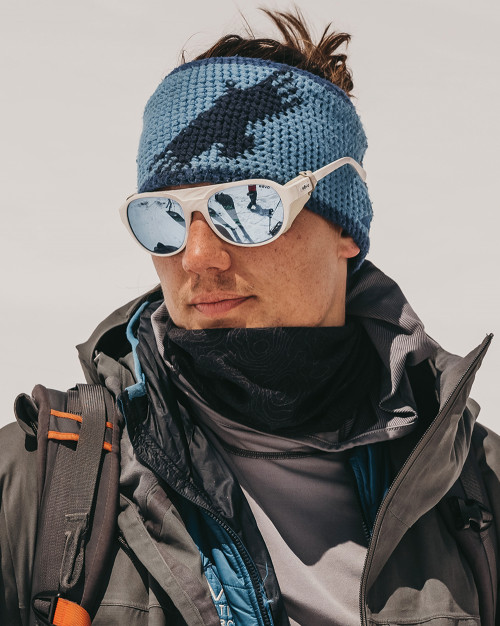
Turning Waste Into Gold
As befitting a child of parents who met as professional ski racers, Thor Retzlaff thrives on speed.
“I can’t stop thinking about new ideas. Like, I have my next four businesses planned out in my head,” he says. “And although I currently have a full plate, you don’t have to sleep to dream. For me, dreaming of ideas is fun.”
Only a few years out from graduation, Retzlaff is doing exactly that.
In 2020, he cofounded a private company called Wasted*, which recently received $7.5 million in seed funding to recycle human waste from portable toilets. The company has designed a system for separating human waste into solids and liquids so that nutrient-rich urine—which contains phosphorus, nitrogen, and potassium—can be processed to reuse as agricultural fertilizer.
“I see us as the catalyst for the circular waste economy,” Retzlaff says, referring to an economic model that is less resource intensive and more focused on recapturing and reusing discarded materials. “I believe Wasted* can be a platform for changing the way people think about waste in every way, and that goes beyond our own human waste.”
Retzlaff considered the Bates Center his home base on campus. He recalls visiting the Entrepreneurship Lab, looking at a whiteboard with a lot of writing on it, and thinking, “What does the word ‘entrepreneurship’ mean? After seeing the whiteboards full of ideas, I was really drawn to get a better understanding of that word.”
He signed up for nearly every program and event the center offered, finding inspiration and motivation in the personal stories told by the visiting speakers who came through to meet and mentor students. He discovered that entrepreneurs shared a critical character trait: courage.
While entrepreneurship may run in Retzlaff’s blood, he credits the center for “refining” that raw energy, boosting his confidence, and teaching him strategies for turning his ideas into reality. He learned that self-belief, communication skills, and attention to details are keys to success.
“A fear of judgment and criticism stops so many people from pushing their innovative ideas out into the world,” he says. “I’ve always known I wanted to go down my own path. My experience at the center provided lots of data points to show that vision was possible.”
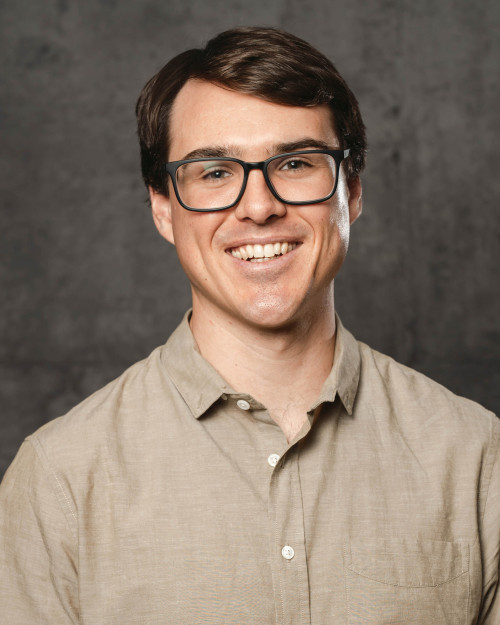
Creating Opportunities as an ‘Intra-preneur’
Hunter Meece connected with the Bates Center in its earliest days. The classes he took and the contacts he made at the center led him to his first job at CrowdStreet, a commercial real estate investment start-up. As one of the firm’s first hires, he has watched his career grow along with the company.
Since its inception, CrowdStreet has raised nearly $4 billion for commercial real estate projects and expanded to 250 employees. Seeing himself as an “intra-preneur,” Meece has pursued different roles within the company as it has grown and currently serves as director of capital markets.
Biggest Lesson Learned at the Bates Center
“I picked up the ability to pursue what interested me and to create my own opportunities. My religious studies degree gave me a fundamental understanding of the world and my place in it. The Bates Center gave me the tools to apply that understanding to problem-solve in the world.”
What It Takes to Succeed
“In start-ups, you’re rewarded for being a creative critical thinker and for being scrappy. I’ve seen people who did well in big corporations but have a hard time with the fast pace of a start-up environment.”
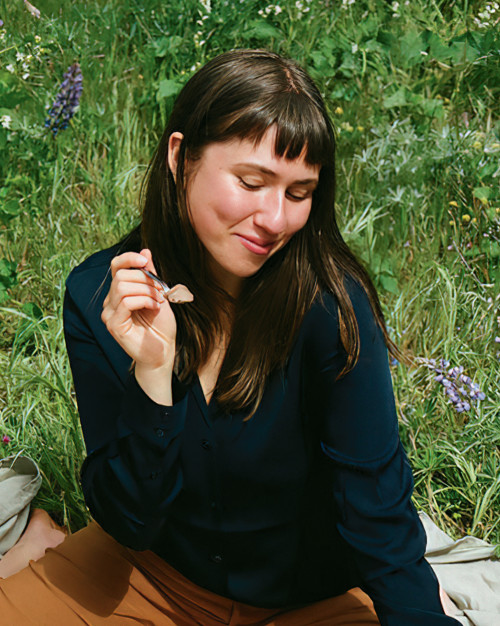
Goddess Mousse Goes to Market
Kellan Navarre has always loved creating innovative, healthy desserts. The Bates Center inspired her to launch Goddess Mousse, a vegan chocolate mousse company that makes treats she says are “as nutritious as a protein bar, as creamy as ice cream, and as decadent as a chocolate truffle.”
Navarre took an entrepreneurship class the second semester of her senior year, parlaying that experience into a $2,000 seed grant from the Bates Center and gaining invaluable business guidance along the way. Three years later, her vegan mousse desserts are available at several Portland-area supermarket chains, including New Seasons, Zupan’s, and Market of Choice.
Biggest Lesson Learned at the Bates Center
“I remember Brian [Detweiler-Bedell, professor of psychology and former center director] telling me to start with a cupcake, not a whole cake. When you start small, you can observe and adapt. This continues to be my philosophy as the steps forward become clear with incremental tests.”
What It Takes to Succeed
“Curiosity and passion help me navigate uncertainty, take measured risks, and wear multiple hats. I’m learning every role, from production and marketing to food science and finance. Running a business is really interdisciplinary.
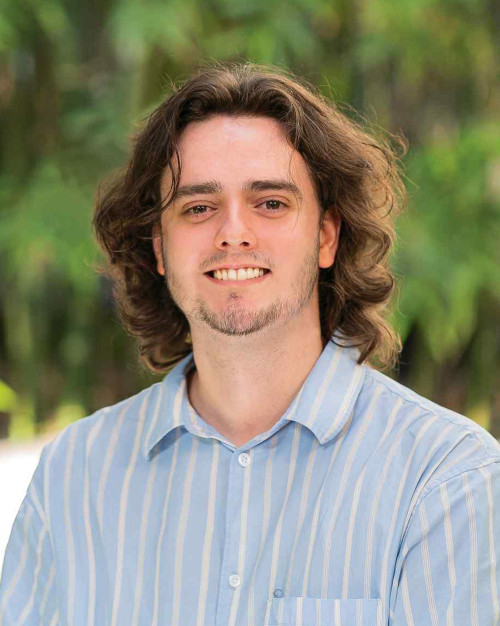
Helping Sustainability Start-ups
An entrepreneurial mindset seems to come naturally to international students, who need to be independent, motivated, and resilient to make the leap to study abroad. Tobias Varntoft, who grew up in a remote town in Denmark before attending Lewis & Clark, is a perfect example.
After being introduced to the Bates Center as a senior environmental studies major, Varntoft’s interest in entrepreneurship led him to his current job with the Larta Institute, a nonprofit that advises start-up companies focused on sustainable science and technology.
Biggest Lesson Learned at the Bates Center
“I’ve never felt I was that great at coming up with new ideas. But I am very good at executing those ideas. On a daily basis, I use the skills the Bates Center emphasizes—thinking critically, empathetically, and collaboratively—in order to help my clients reach their goals.”
Take Off What It Takes to Succeed
“When I start talking to a client, my first question is, ‘Why are you doing this [venture]?’ The ‘why’ is always personal. You have to be able to connect to what they find meaningful in the work.

Modeling a Multifaceted Career
When the COVID pandemic cut short Daelon Floyd’s college basketball career (he was a starting forward for Lewis & Clark), he quickly modified his future ambitions, thanks to the Bates Center. He credits the center with giving him a solid foundation on which to build his career. Floyd now works as an underwriter for a major insurance company. He relies on his Bates Center skill set in his day job as well as in his side gigs as a fitness model, photographer, and aspiring social media personality on TikTok.
Biggest Lesson Learned at the Bates Center
“In college, my focus was on basketball. When the pandemic hit and the season got cancelled, my focus and my mindset shifted to where
I wanted to be 10 years out from graduation. The Bates Center became my support system and helped me get an internship and my first real job.”
What It Takes to Succeed
“You need to be a self-starter and a forward thinker. These traits can manifest in many ways, but you have to be able to recognize how to create success for yourself, however you define it.”
More L&C Magazine Stories
Lewis & Clark Magazine is located in McAfee on the Undergraduate Campus.
MSC: 19
email magazine@lclark.edu
voice 503-768-7970
fax 503-768-7969
The L&C Magazine staff welcomes letters and emails from readers about topics covered in the magazine. Correspondence must include your name and location and may be edited.
Lewis & Clark Magazine
Lewis & Clark
615 S. Palatine Hill Road MSC 19
Portland OR 97219

